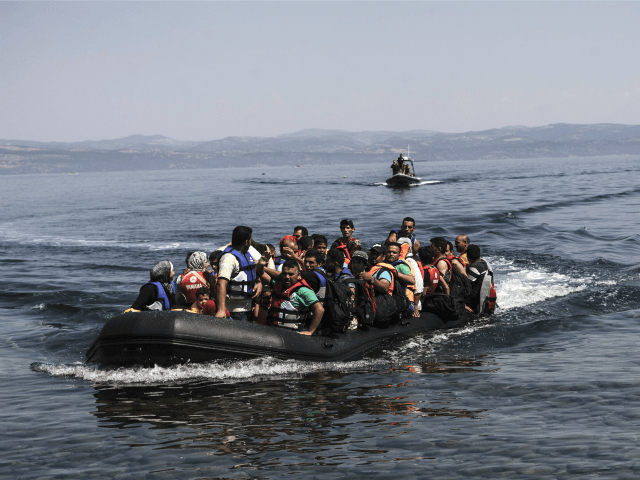(AFP) – The European Union said Thursday it is far from satisfied with Turkey’s cooperation in stemming the flow of migrants to Europe after a landmark deal clinched late last year.
More than one million refugees and migrants have flooded Europe’s shores in the last year, most of them crossing from Turkey to Greece, in the biggest crisis of its kind the continent has faced since World War II.
In November EU leaders pledged three billion euros ($3.2` billion) in aid for the more than two million refugees currently sheltering on Turkish soil from the Syrian civil war, in exchange for Ankara acting to reduce the flow.
But the number of migrants travelling in the last couple of weeks via Turkey remains “relatively high,” European Commission Vice President Frans Timmermans told a press conference in Amsterdam at the launch of the Netherlands’ six-month EU presidency.
“We have seen the first results which are encouraging, but we are a long way from being satisfied,” he said. “We will continue discussing ways of improving the effectiveness of their cooperation.”
Dutch Prime Minister Mark Rutte told the press conference his priorities for his country’s EU presidency were to lower the numbers of migrants entering Europe and ensure EU member states share the burden fairly.
Rutte called for implementing an EU scheme, which was approved in October over the opposition of several eastern European capitals, to relocate 160,000 asylum seekers from frontline countries Greece and Italy to other member states.
So far only about 270 people have been relocated.
– ‘Very confident’ –
European Commission President Jean-Claude Juncker meanwhile said he was “very confident” the Dutch presidency would fulfil an EU plan to set up a pan-European border and coast guard force to protect the bloc’s external border by the time its mandate ends on June 30.
EU leaders set the deadline at a summit in Brussels last month, although Poland and other countries have expressed concerns the force would infringe on their sovereign right to manage their own borders.
The leaders acknowledged they had been too slow to carry out a joint strategy to tackle the crisis that Juncker’s commission, the EU executive, revealed in May following a shipwreck in which nearly 800 migrants drowned.
Turkey remains a lynchpin of the EU’s plan.
Timmermans, a former Dutch foreign minister who has led the EU talks with Ankara, said he will travel to Turkey next Sunday to discuss the implementation of a joint action plan agreed last November.
The EU has also agreed to kickstart stalled talks on Turkey’s push for membership in the 28-nation bloc and end the visa requirement for Turkish visitors to the EU’s passport-free Schengen zone, which is under pressure from the migrant influx.
In return, Turkey vowed to take steps to halt the migrant outflow, including cracking down on people smugglers and cooperating with the EU on taking back economic migrants who do not qualify as refugees.
Turkey is the main launching point for mainly Syrian refugees and migrants who make the dangerous sea crossing to Greece before travelling up through the Balkans to Austria, Germany and other wealthy northern EU countries.

COMMENTS
Please let us know if you're having issues with commenting.